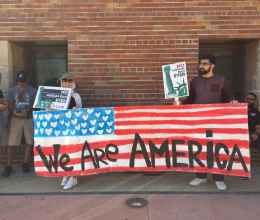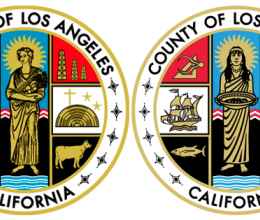ORANGE, Calif. - Members of a Vietnamese Buddhist temple may hold religious services at the medical building it owns despite Garden Grove's repeated attempts to prohibit worship at the site, a federal judge ruled Wednesday.
U.S. District Judge Cormac Carney asked both the city and the temple to create a compromise about how the temple and its congregants can use their building for religious services. The Judge gave both parties until Friday. If no agreement is reached, Carney will hold a hearing on the temple's request for an injunction to stop the city from enforcing its zoning laws.
'This is a great victory,' said Belinda Escobosa Helzer, ACLU/SC staff attorney. 'Yesterday's decision frees the monastics and the congregation to pray and worship together and breathes new life into the temple. We are pleased that the judge recognized the strength of the legal claims and the need for relief even before a final decision is made and encouraged that the temple congregants' will worship together again soon.'
Quan Am Temple, or the Vietnamese Buddhism Study Temple, filed a lawsuit in federal district court in Santa Ana earlier this month against the Garden Grove city council and planning commission for violating the Temple and its congregation's First Amendment rights to free religious exercise, their rights under the California Constitution and the Religious Land Use and Institutionalized Persons Act of 2000.
Quan Am Temple opened in Garden Grove in 1999, but by 2003 the congregation had outgrown its building. The Temple began looking for a larger permanent site to house a monastery and a place of worship for the congregation of 150 to 300 area residents.
Current Garden Grove statutes require religious institutions to be housed in residential zones or seek a zone change from the city and obtain a conditional use permit prior to practicing their religion in the city. In 2004 a congregant loaned Quan Am Temple $1.95 million to purchase a medical building on 1.8 acres in an area zoned Office-Professional that had been on the market for 3 years. Before purchasing the property, the Abbot and two followers received assurances from members of the city council that the city would support the project, but despite a recommendation from city staff the planning commission and the city council denied permits for the project.
The city has routinely allowed non-religious non-profits, including the Boy's and Girls Club, which neighbors the temple site, to be housed in commercial areas, and has granted zone changes to some religious groups in the city, Escobosa Helzer said.

